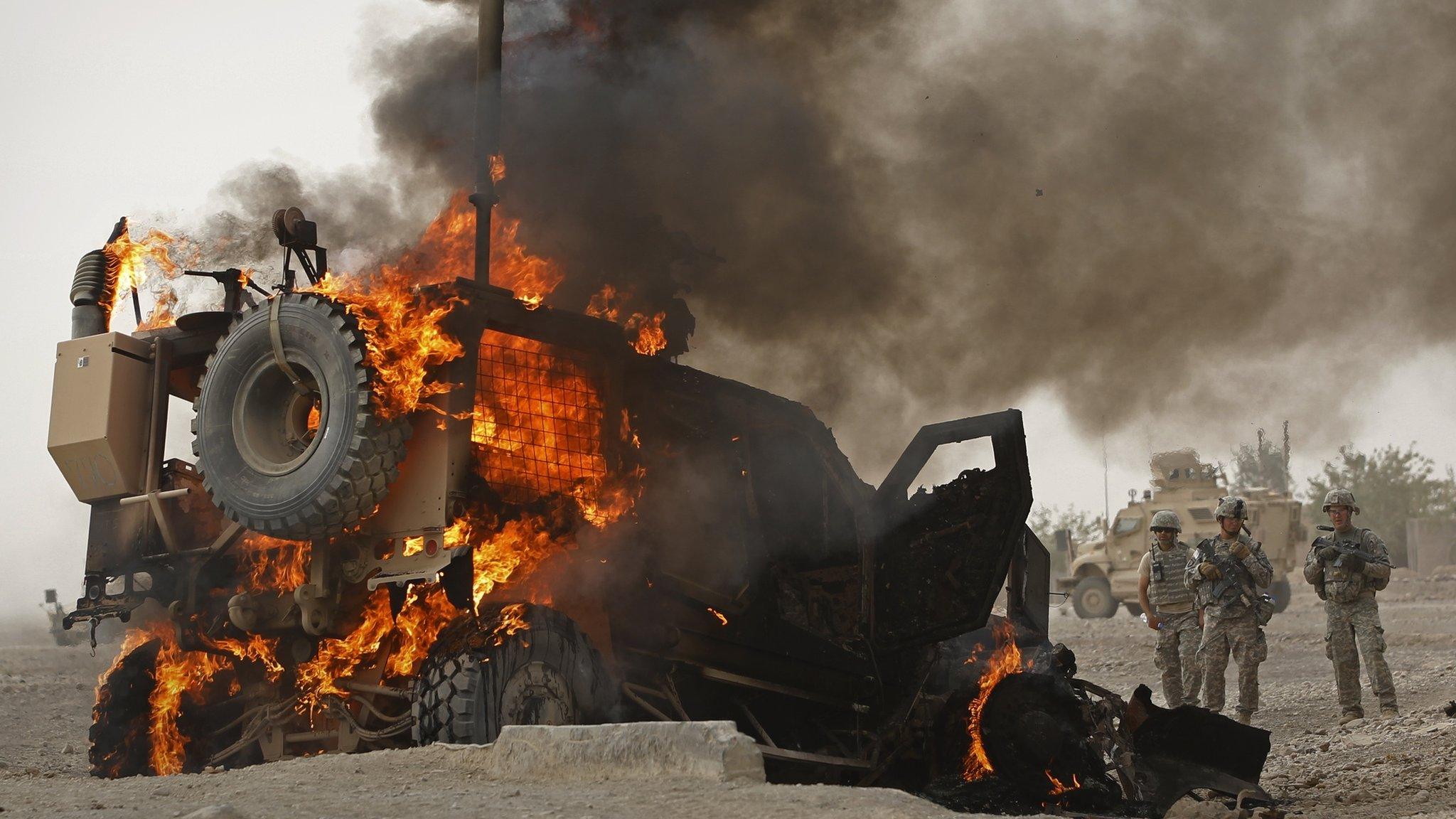Afghanistan: Rival 'presidents' hold two inaugurations
- Published
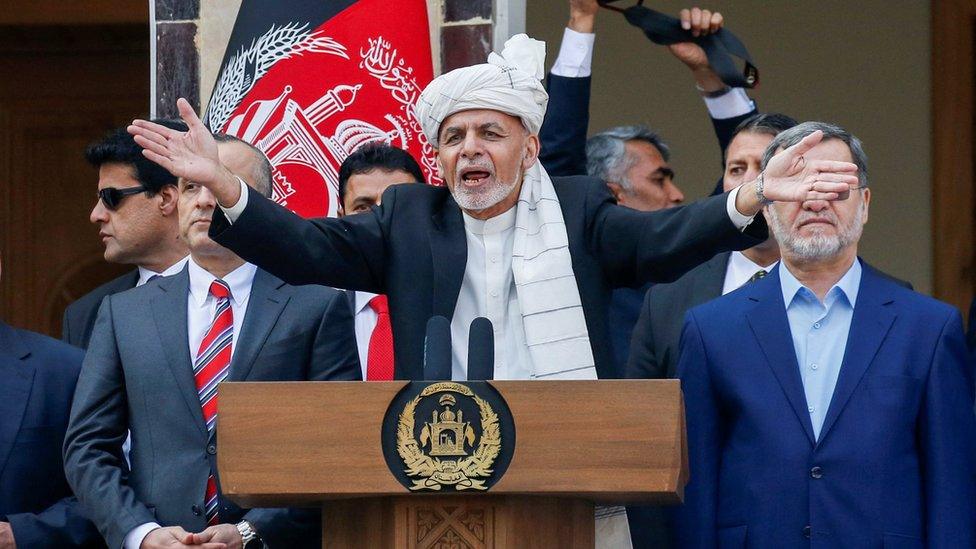
Ashraf Ghani was sworn in as president as his rival attended his own ceremony nearby
Two Afghan politicians - who both claim they won the presidential election - have declared themselves president at rival inauguration ceremonies.
The electoral commission says incumbent Ashraf Ghani narrowly won September's vote, but Abdullah Abdullah alleges the result is fraudulent.
The old rivals both held positions in the previous government.
It comes as Afghanistan prepares to enter peace talks with the Taliban, hoping to end years of violence.
Experts warned the current political rivalry would "gravely affect the government's position in the upcoming intra-Afghan talks", which are due to begin on Tuesday.
"Unity is the only way [forward] if they want to win on the negotiating table," political analyst Atta Noori told AFP news agency.
Explosions were heard during the ceremonies, but there have been no reported injuries.
Mr Ghani, who has been president since 2014, held his inauguration ceremony at the Presidential Palace in the capital Kabul.
The US special envoy Zalmay Khalilzad, charge d'affaires of the US embassy to Afghanistan Ross Wilson, Nato commander Gen Scott Miller and ambassadors of European Union, Canada, Australia, Denmark, Germany and Norway were all in attendance.
Mr Abdullah held his ceremony a short distance away at Sapedar Palace, which he used as his office during his tenure as Afghanistan's chief executive in the last government. The ceremony went ahead despite his team earlier saying they would be prepared to cancel it, following the intervention of Mr Khalilzad.
Mr Khalilzad is trying to work out a power-sharing arrangement between the two camps, with people on the ground clear-eyed about what two rival administrations would mean for Afghanistan.
"It's impossible to have two presidents in one country," one Afghan man told AFP. "Instead of [both] holding oath-taking ceremonies they should talk to each other to find a solution."
The political showdown comes days after Mr Abdullah escaped unharmed from an attack claimed by Islamic State militants, which saw at least 32 people killed.
It was the first major attack in the capital since the US and Taliban signed a deal in late February, which required the Taliban will hold talks with the Afghan government.

You may also be interested in:
The BBC was given exclusive access to spend a week with ambulance workers in Afghanistan.
- Published6 March 2020
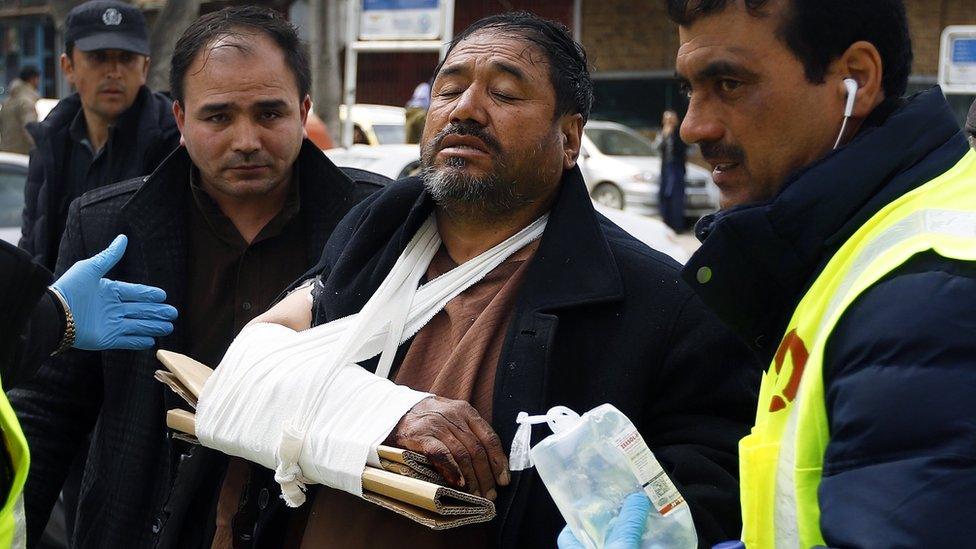
- Published1 March 2020
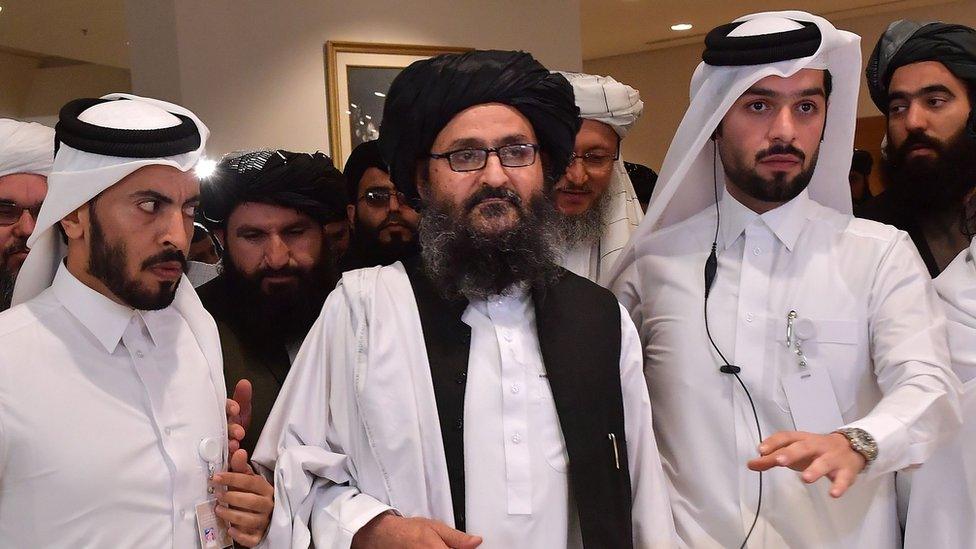
- Published29 February 2020
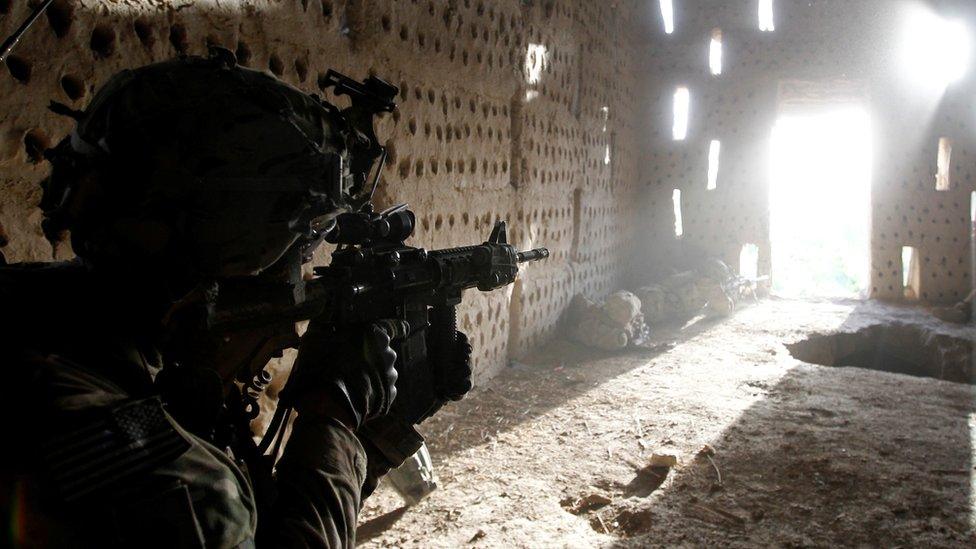
- Published29 February 2020
